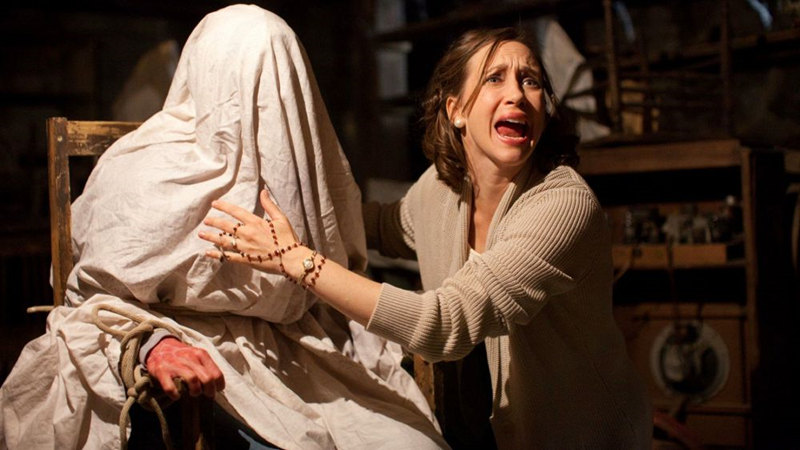Like most films about politics, “The Ides of March”—named for the day Julius Caesar was assassinated by his friend, Brutus, and other dissidents—is more the result of observation and compositing than it is imagination.
In bookstores now there’s a tell-all written by a woman who claims to have had an affair with John F. Kennedy when she was just a 19-year-old intern. And of course there’s Bill Clinton’s famous liaison with intern Monica Lewinsky. On the Republican side, there’s the Mark Foley scandal in which the Congressman was forced to resign after sending sexually suggestive emails to former male Congressional pages, and the infamous men’s restroom incident in which Sen. Larry Craig was accused of soliciting sex and eventually forced to resign.
Politics is a dirty business in which people clean up by getting the dirt on their opponents. Sometimes the stress and a constantly conflicted moral compass can take its toll, as it apparently did when an aide of Sen. Jim Webb committed suicide during the 2006 campaign. He wasn’t alone. Thirteen years earlier White House Counsel Vincent Foster was found dead of apparent suicide. There’s a lot at stake in national politics, but it’s also a lot more complicated than most Hollywood films are capable of showing. That includes “The Ides of March,” which tells a story similar to 1972’s “The Candidate,” but with more recent darker headlines folded in.
George Clooney plays Governor Mike Morris, a flawed idealist with Kennedyesque charm who’s seeking his party’s presidential nomination. It’s a two-horse race, and the narrative begins with the candidates campaigning to win the Ohio Democratic Primary. “Ides” is only peripherally his story. The focus is on Stephen Meyers (Ryan Gosling), a still wide-eyed whiz-kid who’s naive enough to be shocked at some of the things going on behind the scenes but savvy enough to rise to the number two spot in the campaign, just under manager Paul Zara (Philip Seymour Hoffman). The opposition is managed by Tom Duffy (Paul Giamatti), and rather than let us see the two candidates go at it like heavyweights in the ring, screenwriters Clooney and Grant Heslov (“Good Night, and Good Luck”) keep the battle backstage, with the underlings sparring with more underhanded punches.
In “The Ides of March” viewers get a reductive sense of the man’s world of politics that’s a carryover from smoking rooms and men’s clubs, with only two significant female characters: an intern who happens to be the daughter of the DNC chairman (Evan Rachel Wood), and a dogged New York Times reporter (Marisa Tomei). The pace and number of balls that staffers and the candidate juggle also seems simplified. “West Wing” fans will be somewhat surprised that while there’s plenty of phone-ringing background-chatter ambience, what’s missing is the walk-and-talk urgency and constant crisis energy. The dialogue just isn’t as content-rich as what viewers saw in that popular Aaron Sorkin TV series. And where are the bodyguards? Where’s the constant stream of lobbyists and representatives from political action groups? Where are the hecklers in the audience that had become commonplace even before the glitter bombers took the national stage?
As the writer and director, Clooney decided to strip away the many layers that complicate even a single issue in politics in favor of a simpler story about a man’s character and the way he changes throughout the course of a single primary campaign. It has the ring of truth about it, because we have seen so many of the plot points in the newspapers over the past 15 years, but it also seems far less complex than the world of politics is, and far less cacophonous. Is it still an effective film? Yes, “The Ides of March” is a solid film, but it could have been better if it challenged the audience more than it does.
Video:
The AVC/MPEG-4 transfer delivers rich colors, natural skin-tones, and solid edge delineation and detail—the latter holding up quite nicely even in extreme close-ups. I saw no artifacts, and there was nothing at all to detract from the viewing experience. “The Ides of March” is presented in 2.40:1 aspect ratio.
Audio:
Sometimes the front center speaker seems softer than the ambient sounds that are supposed to support it from the left and right, and you couldn’t call this a dynamic soundtrack. At best, the English DTS-HD MA 5.1 audio delivers clear dialogue and enough rear-speaker ambient sound to remind you that they’re still hooked up. What’s more, those with active subwoofers will find that there’s an inconsistent use of lows, so that your unit will click off and on constantly during playback. An Audio Descriptive Dolby Digital 5.1 track is included, with subtitles in English, English SDH, and Spanish.
Extras:
Two Blu-ray exclusives are included here: “Developing the Campaign: The Origins of The Ides of March,” and “What Does a Political Consultant Do?,” both around seven minutes long. One tells about the play that inspired the film, and the other features Stuart Stevens talking about theories of political consulting, which seems like the biggest scam, to listen to him talk. Then there’s “On the Campaign: The Cast of The Ides of March,” another short (six minutes) feature that feels like a pre-release promo, and “Believe: George Clooney,” which is basically a glowing tribute to the actor that runs six minutes.
The best bonus feature is really Clooney and Heslov’s commentary track, which, even though they cover the usual bases, is entertaining to listen to because the guys obviously like each other and don’t take what they do too seriously.
Bottom Line:
Rolling Stone called “Ides” a “pulse-racing thriller,” but I just don’t see it. “The Ides of March” is a solid political drama, but there was far more edge-of-your-seat tension in “All the President’s Men.”


